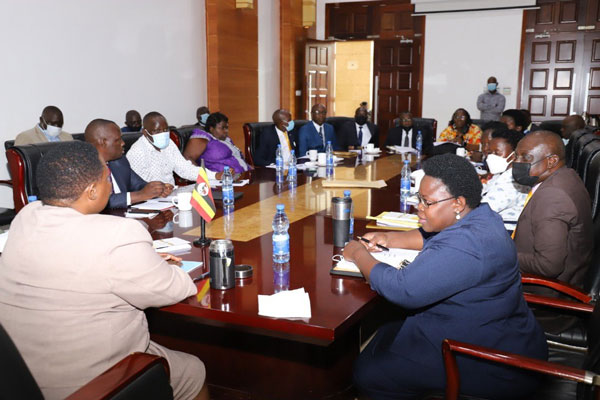
Kampala, Uganda | THE INDEPENDENT | Members of Parliament on the Committee of Commissions, Statutory Authorities, and State Enterprises – COSASE, have expressed disappointment with the Higher Education Students’ Financing Board over the selective distribution of student loans.
The committee is probing the Board following concerns raised by the Auditor General’s report for the Financial Year 2021/2022 which unearthed regional imbalances in the award of the loans to needy Ugandan students.
It has emerged that since its inception in 2014, compared to their vulnerable counterparts in the country’s Eastern, Northern, and Central regions, the Board has selected and awarded loans to more students hailing from the districts of Western Uganda.
Notably, between 2014 and 2016, the Board disbursed loans to 300 students from Bushenyi District; Kasese 307, Mbarara 416, Ntungamo 488, Rukungiri 305, and Sheema 384, whereas Amudat got 1, Nabilatuk 9, Kaabong 11, and Karenga 2 in Karamoja sub-region.
Amuru in the Acholi sub-region got 45, Bugweri in the Eastern region 15, while Madi-Okollo and Obongi combined in the West Nile got only 8 slots, with each getting 4 respectively.
Tasked to explain the disparities, Joyce Moriku Kaducu the State Minister in charge of Primary Education justified that some of the affected districts do not have A-level schools and therefore fail to meet the requisite selection targets.
But the Minster’s response was downplayed by the Committee Chairperson, Joel Ssenyonyi, who argued that the mandate of the Board is to provide loans to needy students but not necessarily students pursuing only science subjects.
Martin Kisule Mugabi Muzaale, the Buzaaya County Member of Parliament in Kamuli District accused the Board of being insensitive in the disbursement of loans noting that they should have applied the district quarter system to ensure disadvantaged regions benefit from the scheme.
Lucy Akello, the Amuru District Woman MP said records of the 45 students being purported to have benefitted from the loan scheme in her constituency don’t exist. She added that many needy students selected by the Board have had their names substituted at different educational institutions.
The MPs contend that the entity has been acting in the convention of Article 20 of the Higher Education Students’ Financing Board policy. It requires the Board to consider regional balance, gender, social-economic needs, and equity in determining one’s eligibility to benefit from the loan.
The scheme was an idea of President Yoweri Kaguta Museveni aimed at financing the education of vulnerable students pursuing science courses. However, the Board has opened up the space to finance learners pursuing courses in the tourism and hotel industry, and persons with disability pursuing humanities.
Annually, the Board awards loan schemes to over 3,000 needy students. Since 2014 to date, at least 13,405 student beneficiaries have been enrolled in the scheme.
****
URN
 The Independent Uganda: You get the Truth we Pay the Price
The Independent Uganda: You get the Truth we Pay the Price





